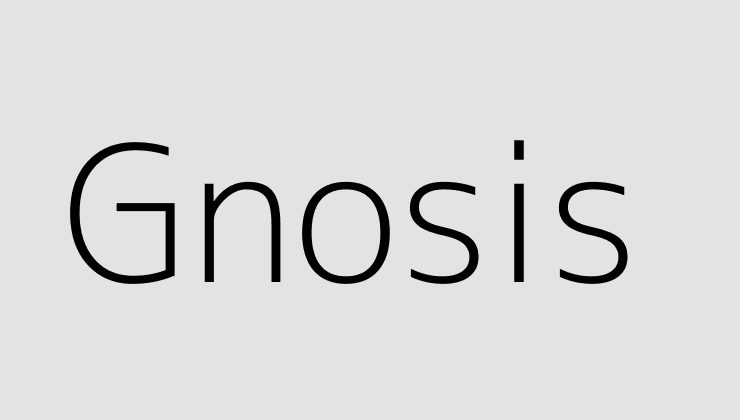Gnosis, bugün itibariyle yaklaşık olarak 338 dolar üzerinden işlem görmektedir. Gnosis hakkında yapılan yorumlar ise oldukça olumlu yönde olup, kripto para piyasasında büyük bir potansiyele sahip olduğu düşünülmektedir. Bu yüzden, Gnosis yorumları hakkında araştırma yapabilir ve yatırım kararınıza yönelik fikir sahibi olabilirsiniz.

Gnosis
What is Gnosis?
Gnosis is a Greek term meaning knowledge. It refers to the pursuit of knowledge and understanding of the nature of reality.
The History of Gnosis
Gnosis has been a subject of study and contemplation for centuries. It was a major influence on the philosophy of the ancient Greeks and has been studied by scholars and mystics alike throughout history.
The Origins of Gnosis
Gnosis has its roots in ancient Greek philosophy, particularly in the teachings of Plato and Aristotle. It also has links to the tradition of mystery schools, which were secret societies that taught esoteric knowledge to their members.
The Rise of Gnosticism
Gnosticism is a religious movement that emerged in the late 1st century AD and continued to develop until the 4th century AD. It was based on the belief that the material world is evil and that secret knowledge, or gnosis, could lead to salvation.
The Key Principles of Gnosis
The pursuit of knowledge and understanding is central to Gnosis. Its key principles include:
The Unity of All Things
Gnosis teaches that everything in the universe is interconnected and that there is a fundamental unity underlying all things.
The Illusion of the Material World
Gnosis holds that the material world is an illusion, and that true reality can only be found by transcending the physical world and accessing the realm of spirit.
The Search for Inner Truth
Gnosis emphasizes the importance of looking within oneself to find the truth. It encourages introspection, meditation, and other forms of spiritual practice as a means of accessing higher states of consciousness.
The Continuing Relevance of Gnosis Today
Despite being an ancient philosophy, Gnosis continues to be relevant today. Its emphasis on the pursuit of knowledge and understanding, the interconnectedness of all things, and the importance of spiritual practices for achieving higher consciousness remain powerful concepts that can help people navigate the challenges of modern life.
Conclusion
Gnosis is a complex and multifaceted philosophy that has been studied and practiced throughout history. Its key principles remain relevant today and can help people achieve a deeper understanding of themselves and the world around them.
FAQs
What is the difference between Gnosis and Gnosticism?
Gnosis refers to the pursuit of knowledge and understanding, while Gnosticism is a specific religious movement that emerged in the late 1st century AD.
Are there any modern-day practitioners of Gnosis?
While Gnosis is not a religion or organized spiritual practice, its principles continue to be studied and practiced by individuals interested in personal growth and spiritual development.
Is Gnosis compatible with mainstream religion?
Gnosis is a philosophy rather than a religion, and its principles can be compatible with various religious traditions or practiced independently of religion.
What are some practical ways to incorporate Gnosis into daily life?
Some practical ways to incorporate Gnosis into daily life include practicing meditation or other forms of spiritual practice, embracing introspection and self-reflection, and seeking out opportunities for learning and personal growth.
What are some good resources for learning more about Gnosis?
There are many books, websites, and other resources available for those interested in learning more about Gnosis. Some recommended resources include the works of Plato and Aristotle, the teachings of Eastern spiritual traditions, and the writings of modern-day spiritual teachers and philosophers.
